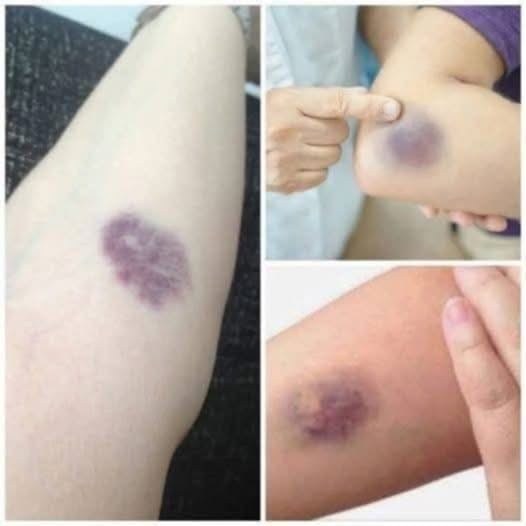But not all bruises are caused by noticeable injuries. If you find bruises frequently or without clear cause, it may be worth investigating further.
Common Causes of Frequent Bruising
- Nutritional Deficiencies
Vitamin C helps strengthen blood vessels by supporting collagen production. A deficiency can make vessels more fragile, leading to easier bruising. Smokers are especially at risk of low vitamin C levels.
Vitamin K is essential for blood clotting. Low levels can cause bruises to form more easily and heal more slowly.
Supplements like ginkgo, ginseng, garlic, ginger, omega-3 fatty acids, or high doses of vitamin E can thin the blood and make bruising more likely—even if your diet is otherwise balanced.
- Medications
Blood thinners (e.g., warfarin, aspirin) and nonsteroidal anti-inflammatory drugs (NSAIDs) like ibuprofen can interfere with clotting.
Steroids, used for inflammation or autoimmune conditions, may thin the skin over time, increasing the risk of bruising.
- Aging and Skin Changes
As we get older, the protective fat layer under the skin thins out. Blood vessels become more fragile, and the skin itself is less elastic. Combined with years of sun exposure, this makes bruising more common with age.
When to Be Concerned
Most bruises are harmless, but there are times when you should speak with a doctor. Watch for:
Bruises that appear without any injury
Unusual locations (such as the back, abdomen, genitals, ears, or hands)
Bruises that don’t fade or change color within a few days
Bruises that last longer than two weeks
Additional symptoms like frequent nosebleeds, bleeding gums, or fatigue
These could signal underlying conditions such as diabetes, blood disorders (like hemophilia), or even leukemia or lymphoma.
How to Care for Bruises
To help a bruise heal faster and reduce pain or swelling, use the RICE method:
Rest the affected area
Ice the bruise for 10–20 minutes at a time (especially within the first 48 hours)
Compress with gentle pressure, if needed
Elevate the area to reduce swelling
After a few days, a warm compress can improve circulation and speed healing. For pain, choose acetaminophen, which won’t thin the blood like aspirin or ibuprofen.
Tips for Prevention
Get tested: If you bruise often, ask your doctor for blood work to check your vitamin levels and clotting function.
Eat smart: Add foods rich in vitamin C (like oranges, strawberries, and bell peppers) and vitamin K (like leafy greens and broccoli) to your diet.
Review your medications and supplements: Some may be increasing your risk without you realizing it.
Make your home safer: Use night lights, secure rugs, and move cords to reduce the chance of falls—especially at night.
The Bottom Line
Bruising is usually just a sign that your body took a hit and is healing. But when bruises are frequent, unexplained, or unusually large, they may be a signal worth paying attention to. With a few changes to your diet, medication routine, and environment, you can reduce the risk—and gain peace of mind.
If you’re ever unsure, don’t guess. Talk to your doctor and get the answers you need.

